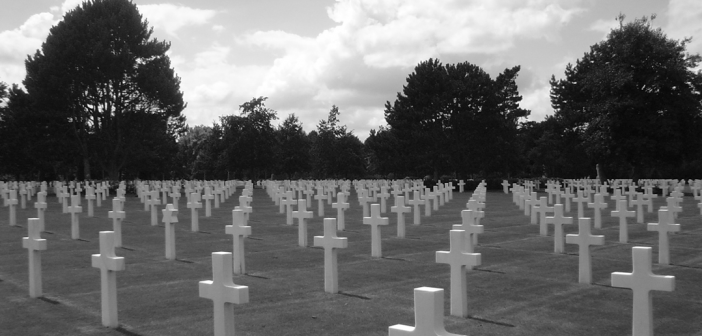At the Whataburger I’m waiting in line behind Davis the medic and a Chaplain who I just met this morning. Dressed in our class A’s, we look sharp, all lines. Standing in the middle of all these civilians, we should feel proud to be soldiers. Davis orders a double bacon cheeseburger combo, takes his cup over to the Coke machine and fills it up with some concoction of different flavors. The Chaplain steps up to the counter and the girl at the cash register looks up at him. He’s a tall guy, big too, but his voice is so soft that he has to repeat himself three times before the girl hears him. He’d be better off just pointing at the menu. I decide on chicken strips. The girl hands me an orange plastic number and I slide into a booth opposite Davis and the Chaplain.
The Chaplain looks at my empty cup and says something like “Don’t forget your drink.” He’s hard to hear over the music playing from the speakers in the ceiling.
“I’m not that thirsty.” I pull three slips of paper from my breast pocket, unfold them on the table, and start reading.
“Don’t you have those memorized yet?” Davis asks, sipping his drink.
“Yes,” I say.
I’ve read these scripts a hundred times already, but this gives me something to do while we wait. All morning I’ve been waiting to deliver my first notification, but the PNOK, that’s Primary Next of Kin, hasn’t been home. When we reach her, I’ll be reading the first script:
NOTIFICATION OFFICER ADDRESS
1 – KILLED IN ACTION
The Secretary of the Army has asked me to express his deepest regret that your [relationship/name] died in [state/country] on [date].
[PAUSE]
The Secretary extends his deepest sympathy to you and your family in this tragic loss.
[PAUSE]
I don’t mean to say that I’ll be reading the script– it’ll be from memory. There are two other scripts–one for missing in action, and one for friendly fire. All three are short and direct and we are supposed to recite them word for word, pausing twice to assess the PNOK’s reaction before moving on. More experienced CNO’s, that’s Casualty Notification Officer, say that the toughest parts to remember are the pauses, mainly because you’re in such a hurry to get the notification over with that it’s hard not to go too fast.
We made our first attempt at 0900. It’s been a blazing hot July, and everybody in the neighborhood seemed to be on their way out to run errands before the temperature rose. Nobody was home at the PNOK’s house. Protocol says we don’t just park and wait. Orders are to check back at the residence every 45 minutes. Davis drove us to a Circle K a few blocks away. We sat at a table inside, near the A/C, and read the newspaper. At 0945 we made a second attempt, still no PNOK, and so we left the neighborhood and drove downtown. We passed three bank buildings and each one displayed a different temperature on its sign: 95º, 93º, and 97º. At 1030, the PNOK still wasn’t home. That’s when Davis decided we ought to hit up the Whataburger for some chow.
A Mexican girl in an orange and white uniform brings out the food for Davis and the Chaplain. Davis starts unwrapping his burger like it’s Christmas morning. The Chaplain unwraps his burger and holds it a moment in his hands, watching a curly-haired man waiting at the counter with two little curly-haired boys tugging at his arms. A minute later, the girl brings out my chicken strips. I set my scripts aside and put the salt and pepper shakers on top of them.
The scripts haven’t changed since WWII, but since the first Gulf War they’ve added a lot of details because of CNO’s who screwed up their notifications. The most common problem used to be to CNO’s waiting in front of houses for hours. That might not seem like a big deal, until a neighbor gets nosy and ends up calling the NOK, or worse, calling other neighbors and telling them that a government vehicle full of soldiers is waiting outside the NOK’s house. Word travels fast, and before you know it a friend notifies the NOK while they’re waiting in line at the grocery store.
Before the new protocol, a lot of CNO’s would exaggerate circumstances to make the KIA seem like he died some big hero. Really, this was just guys trying to help out. Who wants to hear that their soldier died in a car accident two hundred clicks away from the enemy?
But now you follow the script. That’s it. You aren’t even supposed to touch the NOK. This CNO during the first Gulf War touched this woman on her bare shoulder, and then he put his arms around her waist. Somehow they ended up kissing. Later, the woman filed a complaint. The CNO said it happened because he looked a lot like her husband.
That’s why they keep us in teams now. There’s one CNO– that’s me. Then a medic in case of extreme reactions to the news.
“It’s almost always just vomiting or fainting,” Davis explained earlier at the Circle K, “but you can never predict how people are going to take it. Two notifications ago, one old man put his fist through a mirror on the wall.”
Then there’s the Chaplain. He’s with us to say a short prayer if anybody asks.
I open my Styrofoam cup of gravy and hold my chicken strip over it. The curly-haired man and his curly-haired kids have sat at the booth across from us and one of his kids watches me, waiting for me to take a bite. Davis reaches across the table and dips his hamburger in my gravy. When he brings it back over the table, a glob of gravy drips on his trousers.
“Christ,” he says.
The Chaplain watches the medic wipe at the gravy with his napkin. “Don’t do that,” he says. “Go to the bathroom and put a little soap on a paper towel.”
“Huh?” Davis wipes at his pants with the napkin and then balls it up and leaves it on his tray. We eat quietly. Outside on the road, the heat wavers off the asphalt.
“We’d better get going,” I say, looking at my watch.
“Time waits for nothing,” says the Chaplain.
Davis pushes the rest of his hamburger into his mouth and takes a long sip from his cup. We gather up our trays and slide out of the booth. I push my tray into the trash and one of the curly-haired kids comes up behind me.
“Mister,” he says. “You forgot your papers.” He holds up my scripts, and I just stare down at him, at the ketchup on his face. “Your papers, Mister.”
The Chaplain takes the scripts from the boy. “Thank you, son,” he says, and then he nods at the kid’s father. The boy goes back to his fries.
The Chaplain hands me the papers. “It’s okay to be anxious,” he says.
“I’m fine,” I say.
When I step out the door the heat hits my face like an oven. In the Jeep, Davis blasts the A/C as he backs out of the parking space. “Hope she’s home,” he says.
I open up my folder and double check the DD-93. It says that this soldier had a 25-year-old wife and two kids. I’m supposed to update this form during the notification. According to protocol, there will be an appropriate moment to ask for any changes in contact information, marital status, or number of dependents. Then I’ll set up an appointment for the NOK to meet with someone from benefits.
We pull into the neighborhood. I look at the clean streets and all the nice trees and wonder what the PNOK is doing this second. Unloading the dishwasher. Feeding the dog. It’s anybody’s guess. I’d like to think that somehow she feels us coming, that this won’t be a complete surprise.
At a stop sign I look up the block. A minivan is parked in the PNOK’s driveway. My pen isn’t working and I scribble it hard on the manila folder until it runs black. I clear my throat. My mouth is dry and I’m wishing I would have filled up that drink.
We pull up along the curb next to the PNOK’s house. The neighbor is cutting his lawn. He’s a big man without a shirt on, sweat shining on his back and belly. The mower spits out clippings like bright green needles.
“This is the hard one,” the medic says, opening his door. “But don’t worry about the secondary NOK. Ninety-nine percent of the time, they’ve already heard the news when we get to them.”
We step out of the car and shut the doors. The neighbor pauses, standing behind his mower, engine still running. If it weren’t for our uniforms, he might think we were some million dollar prize patrol coming up the sidewalk: Congratulations, m’am, you had the lucky number!
But instead of ten million dollars, I’ve got eighty thousand from benefits. Instead of a camera crew behind me, it’s a medic and a Chaplain.
The front door has a big window with a frosted flower pattern. I peer through at all kinds of shoes arranged on a rug in the doorway. Davis rings the doorbell. The neighbor’s lawnmower roars. Inside the house, a young woman with a round, pretty face comes down the hall toward the door. She sees us through the window, puts her hand over her mouth, and drops to her knees in the entryway.
The medic reaches for the door handle.
“No,” the Chaplain says, and for him to speak over the neighbor’s lawn mower is almost like shouting. “We don’t go in until she lets us in.”
The PNOK leans against the wall, hand over her eyes now. She picks up one of the shoes and throws it against the front door. Then she throws another, and another, and another. I listen, holding my breath, as each shoe thumps against the door. The neighbor cuts the engine.
This story is republished with permission of the author.





